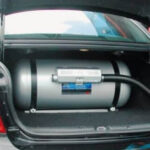The removal of the fuel subsidy caused a sharp strengthening of price pressures in June. In turn, rates of expansion in output and new orders softened, but remained marked nonetheless as business confidence dipped to a near record low, according to the Purchasing Managers’ Index for June.
The PMI, which is a monthly survey by Stanbic IBTC Bank compiled by London-based market intelligence powerhouse S&P Global Platts and endorsed by the National Bureau of Statistics, noted that intensifying inflationary pressures encouraged companies to expand inventories to try and get ahead of further price increases while employment was up modestly for the second month running.
“The headline PMI remained above the 50.0 no-change mark in June. Although dipping slightly to 53.2 from 54.0 in May, the reading signaled a solid monthly improvement in the health of the private sector. While overall business conditions remained on a positive trajectory, firms faced a much stronger inflationary environment at the end of the second quarter of the year, linked to the removal of the fuel subsidy,” it noted.
It added that purchase prices increased at the fastest pace since last August, while the rate of selling price inflation accelerated sharply to the steepest in the year-to-date as firms passed higher costs on to their customers.
- 6 years after, residents organise prayer for late Dan Masanin Kano
- NIGERIA DAILY: Why Nearly Half Nigerian Pilgrims Fell Sick At Hajj
Issues around the ending of the fuel subsidy also acted to limit the pace of output growth, according to respondents, although activity was still up markedly in the latest survey period. Output has now risen in each of the past three months amid higher customer numbers and growth of new orders.
New business was also up for the third successive month.
The survey revealed that higher new orders encouraged firms to expand employment for the second month running, although the pace of job creation was again only modest. Despite increasing staffing levels, firms recorded a build-up of backlogs of work, due to an expansion in new business and some difficulties securing inputs.
Business confidence, however, dropped to the second-lowest on record in June and was only fractionally above last November’s nadir.
“Companies remained optimistic that output will increase over the coming year, however, linked to investment, business expansion plans and proposed marketing drives,” it said.
June data pointed to a sharp and accelerated expansion in stocks of purchases, with the rate of growth the fastest since October last year.
Higher output requirements and a desire to secure inputs ahead of expected price rises were behind inventory building, it added.
 Join Daily Trust WhatsApp Community For Quick Access To News and Happenings Around You.
Join Daily Trust WhatsApp Community For Quick Access To News and Happenings Around You.

